Did Carl Jung work with the CIA?

Carl Jung, the famed Swiss psychiatrist and founder of analytical psychology, led a fascinating life that included a little-known period working with the American Office of Strategic Services (OSS), the intelligence agency that later became the CIA, during World War II. At the request of the OSS, Jung developed psychological profiles of Adolf Hitler and other Nazi leaders in an effort to better understand the fascist mindset.
In 1943, Jung was contacted by Allen Dulles, who headed the OSS office in Bern, Switzerland. Dulles later became the first civilian director of the CIA. The OSS was gathering intelligence to assist the Allied war effort, and Dulles wanted Jung’s help in profiling Hitler and other top Nazi officials. Jung agreed, and began studying Hitler’s speeches, writings like Mein Kampf, and second-hand accounts of those close to the Fuhrer.
Jung’s report, “Analysis of the Personality of Adolph Hitler”, portrayed Hitler as a neurotic “utter wreck” who was “incapable of normal human relationships.” He described Hitler as having a messiah complex, believing he was leading Germany on a mission of “divine providence.” Jung highlighted Hitler’s megalomania and predicted his mental state would continue to deteriorate, leading to a complete psychological breakdown and ultimately suicide to avoid capture as Germany lost the war.
Many of Jung’s predictions proved surprisingly accurate. Hitler did sink deeper into delusion and paranoia as the war turned against Germany, and ultimately took his own life in his Berlin bunker in April 1945. Beyond his profile of Hitler, Jung’s insights shed light on the psychological roots of fascism more broadly.
Jung and the OSS: Profiling Hitler and the Psychology of Fascism
In 1943, at the height of World War II, Jung was recruited by the U.S. Office of Strategic Services (OSS), the precursor to the CIA, to help develop a psychological profile of Adolf Hitler. The OSS, under the direction of Allen Dulles in Bern, Switzerland, sought to gain insight into the mind of the German dictator to anticipate his actions and hasten the end of the war.
Jung, who had long been interested in the psychological underpinnings of Nazism, agreed to assist. He studied Hitler’s speeches, writings like Mein Kampf, and reports from informants close to Hitler’s inner circle. In his report, “Analysis of the Personality of Adolph Hitler,” Jung painted a striking portrait of a man consumed by a messiah complex, paranoid delusions, and a deeply disordered psyche.
Jung described Hitler as an “utter wreck” with a “nervous disposition bordering on psychosis,” who was “incapable of normal human relationships.” He predicted that as Germany faced defeat, Hitler would become increasingly unstable, ultimately leading to a psychological collapse and suicide – a forecast that proved chillingly accurate.
But Jung’s analysis went beyond Hitler as an individual to provide insight into the psychology of fascism more broadly. He saw Nazism as a manifestation of the “collective unconscious” of the German people, particularly the repressed resentments, fears, and aggressive impulses that Hitler was able to tap into and channel.
For Jung, Hitler was a mouthpiece for the pent-up shadow energies of the populace, which found expression through Nazi symbols, rituals, and the hypnotic spectacle of events like the Nuremberg rallies. Fascism, in Jung’s view, arose when these irrational, archetypal forces overwhelmed the rational ego and took possession of the psyche.
Jung’s Approach in Context: Other Psychological Perspectives on Fascism
Jung’s ideas about the roots of fascism, while influential, were part of a broader conversation among psychologists and philosophers at the time. The Frankfurt School, a group of neo-Marxist thinkers, saw fascism as a byproduct of capitalism’s contradictions and the “authoritarian personality” that economic pressures produced.
Theodor Adorno, in his landmark work “The Authoritarian Personality,” characterized the fascist mindset as rigid, conventional, intolerant of ambiguity, and prone to project its unconscious fears and desires onto scapegoated groups. While Adorno situated these traits within a socioeconomic frame, Jung saw them as emanations of timeless archetypes.
Another perspective came from Wilhelm Reich, a psychoanalyst who had studied under Freud. In his book “The Mass Psychology of Fascism,” Reich argued that fascism stemmed from the repression of natural sexual and emotional energies due to patriarchal morality and strict familial and societal structures. This repression, Reich held, generated an excess of “orgone” energy that was easily channeled into nationalist aggression and submission to authority.
Gilles Deleuze and Felix Guattari, French poststructuralist philosophers, proposed in their “Anti-Oedipus” that fascism operates at multiple levels – individual, familial, institutional, economic – and arises from the complex dynamics of “desire” that flow through all these domains. Unlike Reich’s emphasis on repression, they saw fascism as a perverse “deterritorialization” of libidinal energies.
While each of these thinkers had their unique lens, they all recognized, like Jung, the potent irrational and unconscious forces that fascism unleashed and exploited. Jung’s mythological approach, while sometimes lacking their specificity, captured the numinous dimension – the uncanny way fascist movements seem to enact primordial patterns and invoke a sense of fateful destiny.
Influence and Ambivalence: Jung’s Conflicted Kinship with Nietzsche
Jung’s fascination with the irrational aspects of the psyche, which informed his analysis of Nazism, owed much to his complex relationship with the work of Friedrich Nietzsche. Nietzsche had blazed the trail that Jung would follow in exploring the uncharted wilderness of the unconscious mind. Yet Jung had a fraught kinship with his brilliant but unstable predecessor, whose tragic descent into madness loomed as a cautionary tale.
In his autobiography “Memories, Dreams, Reflections,” Jung recounts his early hesitation to read Nietzsche, fearing that he might find himself “too similar” to the philosopher who had ventured to the edge of the abyss. This anxiety points to Jung’s perception of a deep resonance between Nietzsche’s ideas and his own intuitions about the psyche’s hidden depths.
When Jung did engage with Nietzsche intensively, he was struck by the uncanny parallels. Nietzsche’s dynamic of Apollonian and Dionysian forces prefigured Jung’s theory of opposites and enantiodromia (the emergence of the repressed opposite). Nietzsche’s “will to power,” while often misunderstood as a drive for domination, aligned with Jung’s view of the psyche as a self-regulating system that seeks wholeness through the integration of contrasting elements.
However, as Jungian scholar Lucy Huskinson argues in her book “Nietzsche and Jung: The Whole Self in the Union of Opposites,” Jung often misread Nietzsche by interpreting him too rigidly through the lens of his own established concepts. Jung failed to grasp the radical openness and fluidity of Nietzsche’s perspectivism, instead collapsing it into a sort of psychic determinism.
For instance, Jung contends that Nietzsche recognized no “spiritual reality” beyond the bodily drives, when in fact Nietzsche affirms a “higher self” that guides the ego towards self-overcoming. Similarly, Jung accused Nietzsche of locating creativity solely in the conscious will, when Nietzsche equally emphasized the “great reason of the body” and the generative power of the unconscious.
Huskinson suggests that Jung, so deeply steeped in his own theoretical system, at times projected it onto Nietzsche in a way that limited his appreciation for the philosopher’s more radical insights. Jung’s need to distance himself from Nietzsche’s “morbidity” and to cast himself as the one who would bring Nietzsche’s discoveries to safe harbor may have blinded him to the ways in which Nietzsche’s thought exceeded his own categories.
Yet despite these misapprehensions, Jung’s confrontation with Nietzsche was a pivotal chapter in the history of depth psychology. Nietzsche’s fearless exploration of the psyche’s hidden recesses, his embrace of the irrational and paradoxical, his insistence on the creative power of self-overcoming – all of these shook Jung to the core and catalyzed his own journey into the labyrinthine depths of the mind.
Jung’s Legacy and Relevance to Modern Fascism
In his multifaceted career – from pioneering psychological theories to profiling Nazi leaders to grappling with Nietzsche’s formidable ghost – Jung emerges as a figure who sought to fathom the most complex and shadowy dimensions of the human experience. His insights into the archetypes, the collective unconscious, and the integration of opposites continue to resonate in fields ranging from psychotherapy to cultural studies to spirituality.
At the same time, Jung’s limitations are also instructive. His occasional tendency to universalize his own concepts, his uneasy relationship to politics and social realities, his projection of his own conflicts onto interlocutors like Nietzsche – all of these remind us of the inescapable human context of even the most brilliant pioneers.
As we grapple with the enduring challenges of our age – from the resurgence of authoritarian movements to the perennial crises of meaning and identity – Jung’s intellectual legacy offers both tools and cautionary tales. His penetrating analysis of the psychological roots of fascism remains as relevant as ever, even as his blind spots warn us against the temptation of facile mythologizing.
Perhaps most enduringly, Jung’s lifelong labor to understand the turbulent forces of the psyche – and his courage in facing his own shadows – stands as a testament to the ongoing necessity of self-examination and the endless complexity of the human soul. In wrestling with figures like Nietzsche, Jung reminds us that the path to wisdom is seldom straightforward, but demands a willingness to confront the most difficult and unsettling aspects of ourselves and our world.
As we navigate the uncertain terrain of the 21st century, Jung’s legacy invites us to venture beyond the familiar, to question our assumptions, and to seek a more expansive understanding of the psyche’s depths and the forces that shape our shared reality. While not a perfect guide, Jung remains an essential companion for any serious explorer of the mind’s uncharted territories.
The Missed Connection: Jung, Nietzsche, and the Allure of Fascism
Despite his profound insights into the psychological underpinnings of fascism, there were crucial dimensions of the phenomenon that Jung may have underestimated – dimensions that were intimately linked to his incomplete understanding of Nietzsche’s appeal.
What Jung perhaps failed to fully grasp about both Nietzsche and Hitler was the way in which they tapped into a deeper spiritual yearning and sense of alienation experienced by many young men of their times. Beneath the disturbing political manifestations, there was a hunger for meaning, purpose, and transcendence that both figures managed to evoke and manipulate.
For Nietzsche, this took the form of a provocative, poetic philosophy that celebrated individual self-overcoming, creative transformation, and the heroic embrace of life in all its tragedy and splendor. His works, while often misinterpreted, spoke to a generation of young intellectuals who felt stifled by the conformist culture and depleted values of late 19th-century Europe.
Similarly, Hitler’s fascist ideology, however perverse, offered a seductive promise of renewal, of a grand heroic destiny that could lift the German people out of the humiliation and dysfunction of the Weimar era. The Nazi spectacle, with its mythic symbolism, its ritualized echoes of a glorious Germanic past, and its cult of the warrior spirit, resonated with deep archetypal longings for sacrifice, transcendence, and transformative violence.
What Jung may have underestimated in his analysis of Hitler – and in his ambivalent critique of Nietzsche – was the way in which these figures provided a twisted but potent answer to the crisis of meaning and the hunger for spiritual intensity that gripped so many young men adrift in a disillusioned, morally fragmented world.
Jung saw in Nietzsche a kindred spirit who had plumbed the depths of the psyche but succumbed to its dangerous currents. What he may have missed was the extent to which Nietzsche’s Dionysian philosophy and Zarathustra’s messianic aura foreshadowed the fascist seduction – offering a mythic horizon that channeled existential yearnings into a reckless, ultimately destructive path of pseudo-transcendence.
In his profile of Hitler, Jung astutely recognized the devastating consequences of such unchecked mythic identification. But he may not have fully reckoned with the prior spiritual void and the desperate search for heroic meaning that made Hitler’s dark charisma so fatally attractive.
This was a perilous allure that Jung knew all too well from his own experience. He too had felt the pull of the Germanic myths, of the cult of Wotan and the fantasm of a “spiritual” nationalism. He too had wrestled with the temptation to merge with archetypes and to inflate his own sense of prophetic destiny.
Yet Jung had managed to wrest himself from these treacherous identifications and to forge a more integrated, self-aware path. He had confronted his shadow, engaged in rigorous self-analysis, and developed a psychotherapeutic approach aimed at wholeness rather than possession by unconscious forces.
What he perhaps didn’t fully acknowledge was how close he himself had come to succumbing to the siren song that had lured Nietzsche into the abyss and that Hitler had orchestrated on a catastrophic collective scale. In his urgency to distance himself from Nietzsche’s “morbidity” and to pathologize Hitler’s megalomania, Jung may have downplayed the more general spiritual malaise and the crisis of meaning that made their messages so resonant.
This blind spot in Jung’s analysis of fascism and his assessment of Nietzsche’s legacy points to the ongoing challenge of confronting the shadow not just within individuals, but within cultures and societies. It highlights the ever-present danger of mythic energies being channeled into destructive ideological movements that masquerade as paths to spiritual renewal and heroic self-realization.



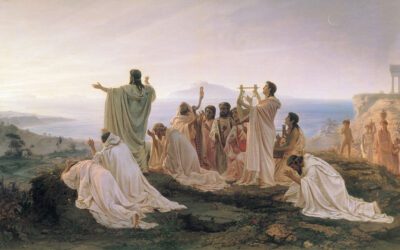
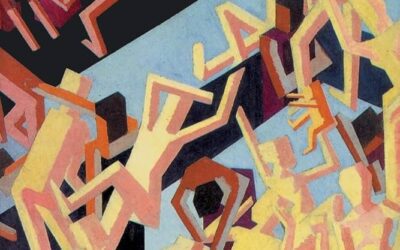
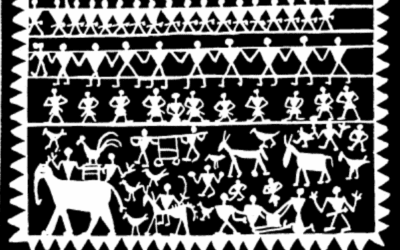

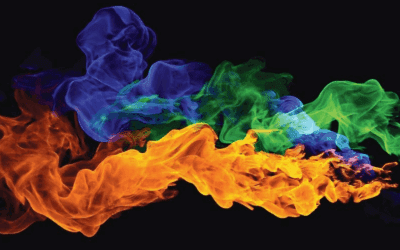
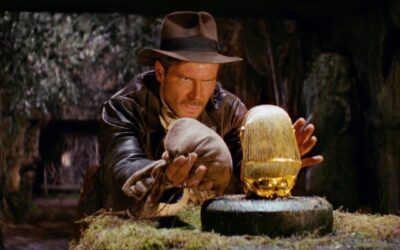
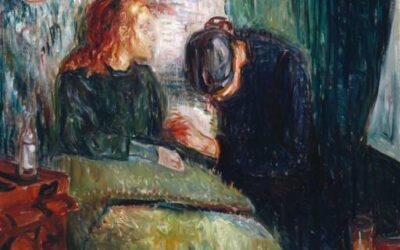


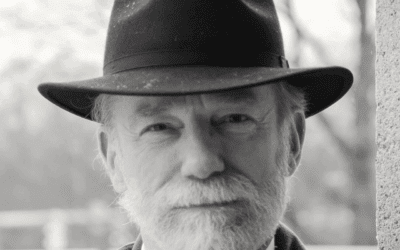

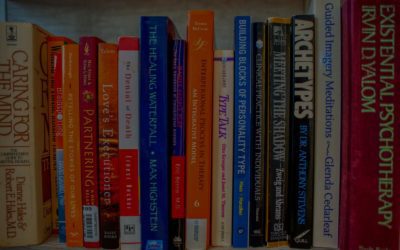

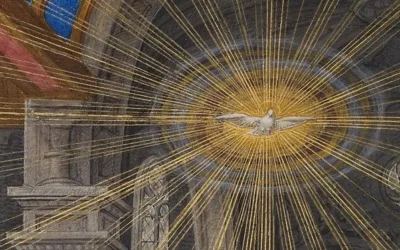

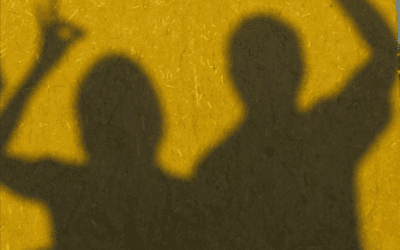




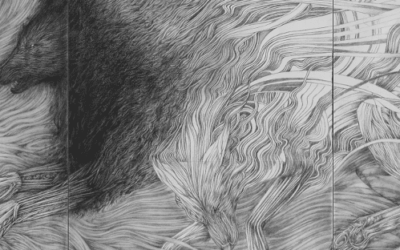


0 Comments